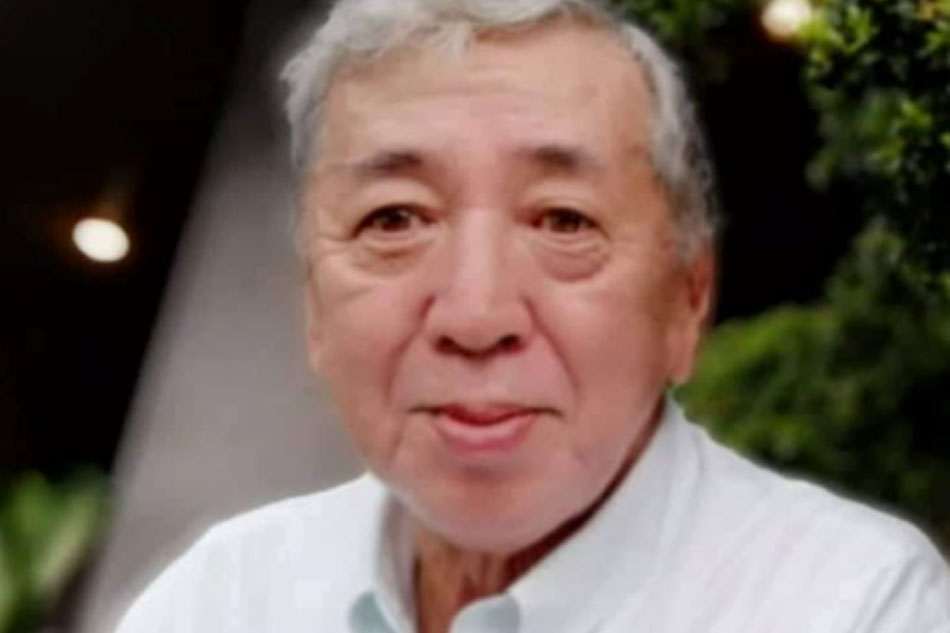Manila's Japanese-language paper loses founder, but forges ahead | ABS-CBN

Welcome, Kapamilya! We use cookies to improve your browsing experience. Continuing to use this site means you agree to our use of cookies. Tell me more!
Manila's Japanese-language paper loses founder, but forges ahead
Manila's Japanese-language paper loses founder, but forges ahead
Takuro Iwahashi,
Kyodo News
Published Aug 12, 2020 09:56 PM PHT
MANILA - The Daily Manila Shimbun, a Japanese-language newspaper published in the Philippines' capital Manila, marked its 10,000th issue on July 28. No long after, on Sunday, the paper's founder, Hirochika Noguchi, died at his home in Manila at age 74.
MANILA - The Daily Manila Shimbun, a Japanese-language newspaper published in the Philippines' capital Manila, marked its 10,000th issue on July 28. No long after, on Sunday, the paper's founder, Hirochika Noguchi, died at his home in Manila at age 74.
Noguchi, a grandson of former Japanese Prime Minister Fumimaro Konoe, had worked for Kyodo News, where he was known among his colleagues for his reporting on crimes.
Noguchi, a grandson of former Japanese Prime Minister Fumimaro Konoe, had worked for Kyodo News, where he was known among his colleagues for his reporting on crimes.
After leaving the Japanese news agency, he moved to Manila and launched Kyodo News Daily, the forerunner of The Daily Manila Shimbun, on May 3, 1992.
After leaving the Japanese news agency, he moved to Manila and launched Kyodo News Daily, the forerunner of The Daily Manila Shimbun, on May 3, 1992.
The paper, aimed to cater to the Japanese community in the Philippines, grew out of his desire to launch a "newspaper that reports Asian news from Asia."
The paper, aimed to cater to the Japanese community in the Philippines, grew out of his desire to launch a "newspaper that reports Asian news from Asia."
ADVERTISEMENT
The newspaper changed its name to The Daily Manila Shimbun in January 1996, with the editorial policy of featuring local news on its front page whenever it can. It ran a series of articles that investigated consular work at the Japanese Embassy in Manila.
The newspaper changed its name to The Daily Manila Shimbun in January 1996, with the editorial policy of featuring local news on its front page whenever it can. It ran a series of articles that investigated consular work at the Japanese Embassy in Manila.
The paper even launched a sister publication in Indonesia in November 1998 called The Daily Jakarta Shimbun.
The paper even launched a sister publication in Indonesia in November 1998 called The Daily Jakarta Shimbun.
The editor in chief of The Daily Manila Shimbun, Eiichiro Ishiyama, said his reporters go out and gather news on the ground, often making rounds at police stations and government offices, much the same way reporters around the world do.
The editor in chief of The Daily Manila Shimbun, Eiichiro Ishiyama, said his reporters go out and gather news on the ground, often making rounds at police stations and government offices, much the same way reporters around the world do.
The organization has some 10 Japanese staff members and about 40 Filipino staff members who together manage editorial and marketing work, and deliveries.
The organization has some 10 Japanese staff members and about 40 Filipino staff members who together manage editorial and marketing work, and deliveries.
The coronavirus pandemic has hit the newspaper hard, leading to a sharp fall in ad revenue. Its circulation has also been affected, standing at around 4,500 copies. Its Internet version that can be read overseas is emerging as a new revenue source.
The coronavirus pandemic has hit the newspaper hard, leading to a sharp fall in ad revenue. Its circulation has also been affected, standing at around 4,500 copies. Its Internet version that can be read overseas is emerging as a new revenue source.
ADVERTISEMENT
Three university students were set to start working as reporters in April. But they were forced to return to Japan amid the pandemic. The paper currently has five Japanese reporters, including 63-year-old Ishiyama.
Three university students were set to start working as reporters in April. But they were forced to return to Japan amid the pandemic. The paper currently has five Japanese reporters, including 63-year-old Ishiyama.
Recently corrections have become more noticeable, likely reflecting staffing shortage in the newsroom.
Recently corrections have become more noticeable, likely reflecting staffing shortage in the newsroom.
Ishiyama, however, counts himself lucky for being able to write news stories in a country that is undergoing transformation due to the pandemic.
Ishiyama, however, counts himself lucky for being able to write news stories in a country that is undergoing transformation due to the pandemic.
He is also determined to let Noguchi's legacy live on and keep reporting on the Philippines of today. "I have no choice but to grit my teeth and keep writing."
He is also determined to let Noguchi's legacy live on and keep reporting on the Philippines of today. "I have no choice but to grit my teeth and keep writing."
==Kyodo
Read More:
Manila Shimbun
Daily Manila Shimbun
Hirochika Noguchi
Japanese newspaper in Philippines
foreign media in the Philippines
ADVERTISEMENT
ADVERTISEMENT


